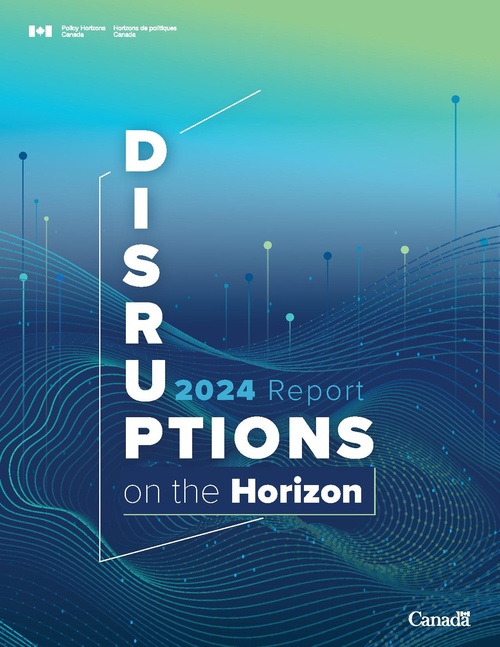Disruptions on the Horizon
| Paper | |
|---|---|
| Title | Disruptions on the Horizon |
| Type | report |
| Topic | Public Safety and Response |
| Publisher | His Majesty the King in Right of Canada |
| Issue | 2024-05-21 |
| Date Accessed | 2024-05-21 |
| isbn | 978-0-660-71025-9 |
| URL | https://horizons.service.canada.ca/en/2024/disruptions/Disruptions_on_the_Horizon_2024_report.pdf |
| File | 
|
Today, the world faces multiple complex crises that can contribute to unexpected disruptions. The Disruptions on the Horizon report stems from a critical question many decision makers grapple with: what disruptions should we anticipate next?
The Disruptions on the Horizon 2024 report identifies and assesses 35 disruptions for which Canada may need to prepare and explores some of the interconnections between them. These disruptions are potential events and circumstances that could affect our society and the way it functions, as well as the way people live, work, and connect. Their impacts can be perceived as positive or negative, depending on one’s perspective.
While the disruptions presented in this report are not guaranteed to occur, they are plausible. Neglecting to consider them may lead to policy failure and missed opportunities. Thinking through possible disruptions when developing policies, programs, and strategies could help seize opportunities, navigate impacts, and minimize risks.
Leaders, policy makers, and decision makers can benefit from thinking through possible disruptions on the horizon when developing policies, programs, and strategies. These disruptions might create challenges or opportunities. Some can be avoided, or their impacts minimized, while others require adaptation